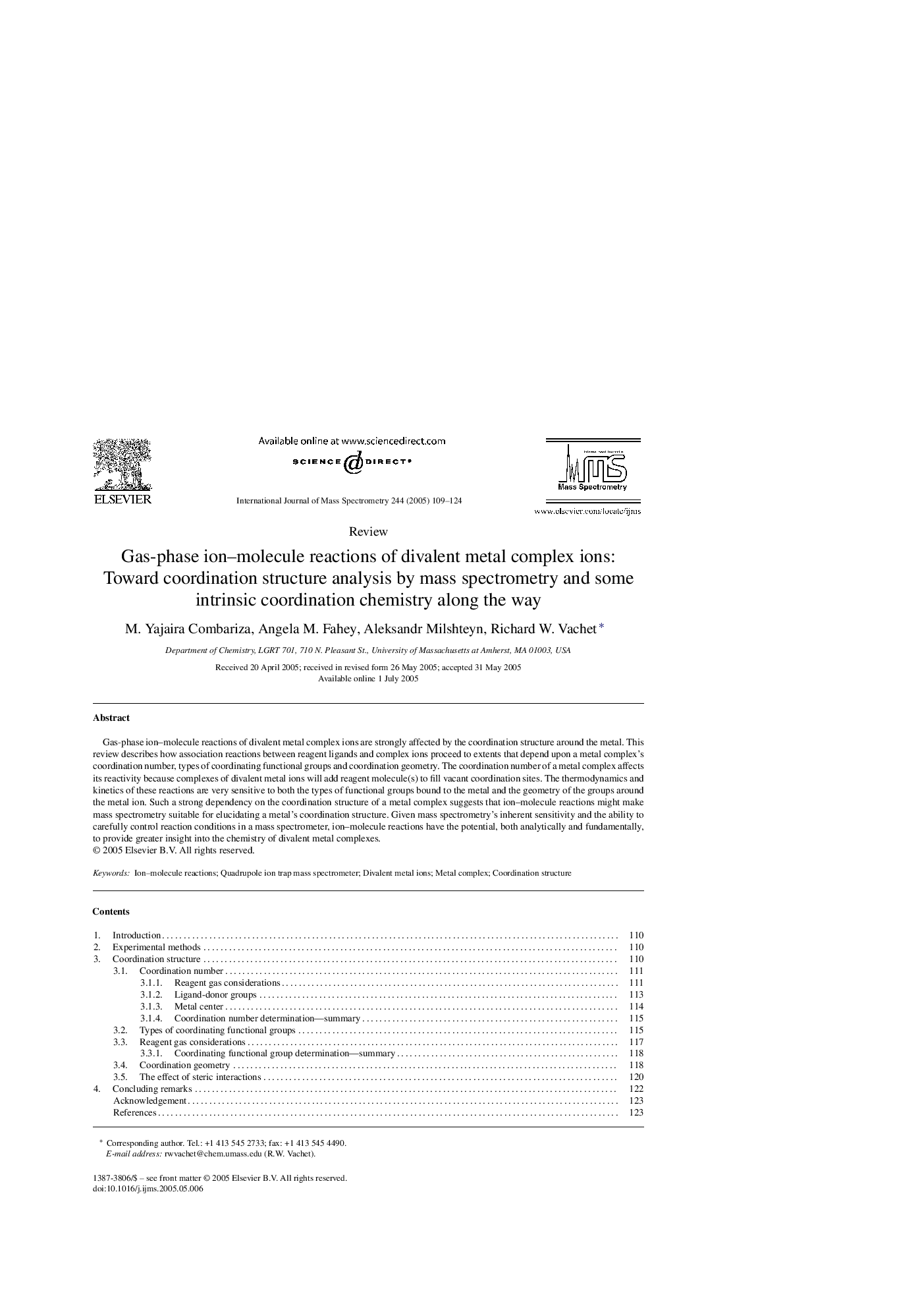| Article ID | Journal | Published Year | Pages | File Type |
|---|---|---|---|---|
| 9746642 | International Journal of Mass Spectrometry | 2005 | 16 Pages |
Abstract
Gas-phase ion-molecule reactions of divalent metal complex ions are strongly affected by the coordination structure around the metal. This review describes how association reactions between reagent ligands and complex ions proceed to extents that depend upon a metal complex's coordination number, types of coordinating functional groups and coordination geometry. The coordination number of a metal complex affects its reactivity because complexes of divalent metal ions will add reagent molecule(s) to fill vacant coordination sites. The thermodynamics and kinetics of these reactions are very sensitive to both the types of functional groups bound to the metal and the geometry of the groups around the metal ion. Such a strong dependency on the coordination structure of a metal complex suggests that ion-molecule reactions might make mass spectrometry suitable for elucidating a metal's coordination structure. Given mass spectrometry's inherent sensitivity and the ability to carefully control reaction conditions in a mass spectrometer, ion-molecule reactions have the potential, both analytically and fundamentally, to provide greater insight into the chemistry of divalent metal complexes.
Related Topics
Physical Sciences and Engineering
Chemistry
Analytical Chemistry
Authors
M. Yajaira Combariza, Angela M. Fahey, Aleksandr Milshteyn, Richard W. Vachet,
